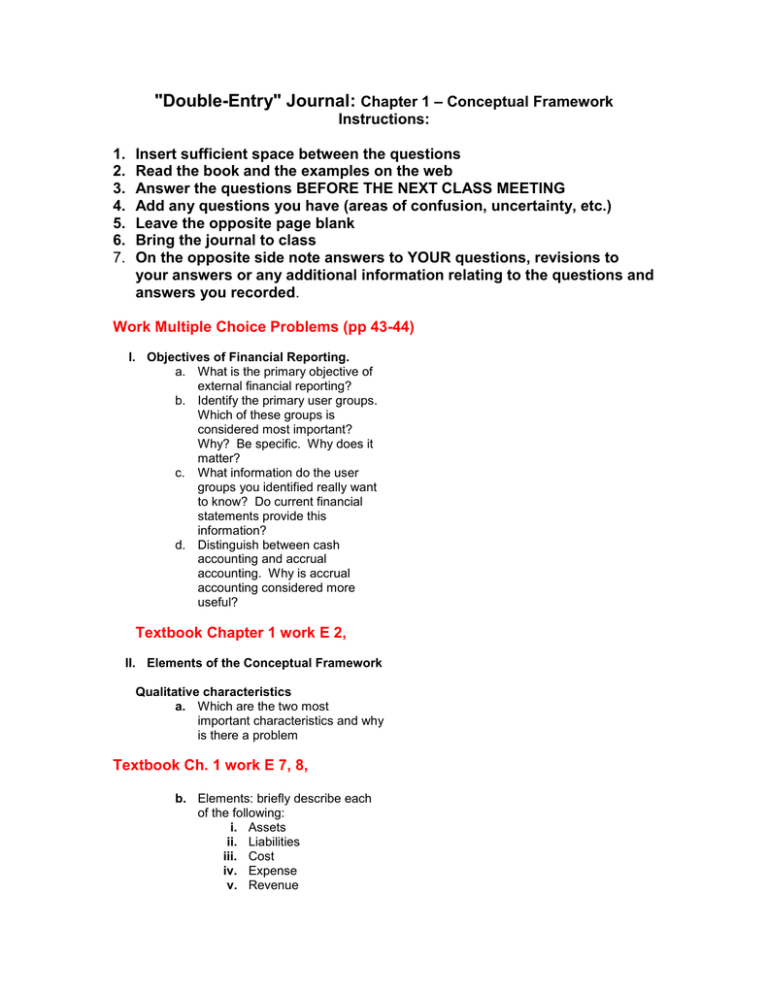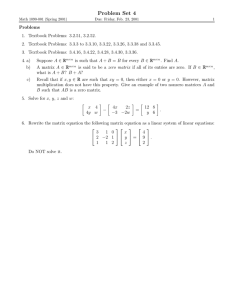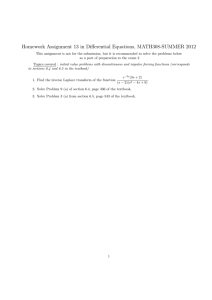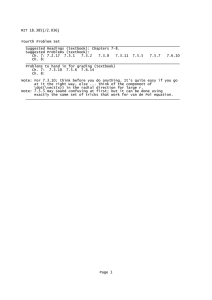"Double-Entry" Journal:
advertisement

"Double-Entry" Journal: Chapter 1 – Conceptual Framework Instructions: 1. 2. 3. 4. 5. 6. 7. Insert sufficient space between the questions Read the book and the examples on the web Answer the questions BEFORE THE NEXT CLASS MEETING Add any questions you have (areas of confusion, uncertainty, etc.) Leave the opposite page blank Bring the journal to class On the opposite side note answers to YOUR questions, revisions to your answers or any additional information relating to the questions and answers you recorded. Work Multiple Choice Problems (pp 43-44) I. Objectives of Financial Reporting. a. What is the primary objective of external financial reporting? b. Identify the primary user groups. Which of these groups is considered most important? Why? Be specific. Why does it matter? c. What information do the user groups you identified really want to know? Do current financial statements provide this information? d. Distinguish between cash accounting and accrual accounting. Why is accrual accounting considered more useful? Textbook Chapter 1 work E 2, II. Elements of the Conceptual Framework Qualitative characteristics a. Which are the two most important characteristics and why is there a problem Textbook Ch. 1 work E 7, 8, b. Elements: briefly describe each of the following: i. Assets ii. Liabilities iii. Cost iv. Expense v. Revenue c. Recognition and measurement When is revenue recognized? Expenses? Losses? Gains? d. Explain the matching principle e. Constraints: Define and explain the role of materiality and conservatism Textbook Chapter 1 work E-9, 12, 15 III. Standard Setting - Who currently sets accounting standards in the US? Who has the legal authority? Granted by whom? a. What does the term Generally Accepted Accounting Principles mean? Be specific in your answer. b. Briefly describe the normal standard setting process. c. What happens if a quick decision is needed on some accounting issue? d. What is the term used for rules issued by the FASB? By the SEC? The AICPA? Textbook Chapter 1: Work Case 7 IV. International Accounting Standards - Who sets them? What are they called? Do we care? What does the FASB, the SEC say or do on this subject? Textbook Chapter 1: Work Case 4


